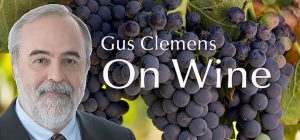You may notice some wines announce they are kosher, sometimes, kosher mevushal. What does that mean?
Kosher is Yiddish for “proper” or “fit.” Kosher wine only contains kosher ingredients. Once grapes are picked, only Shabbat-observant Jews can be involved in making the wine. Wine-making equipment must be rabbinically certified.
Kosher wine is made same way as non-kosher wine, but without some ingredients some winemakers use. Sacramental wine used in the Catholic church has the same ingredient rules as kosher wine.
Kosher wine does not automatically mean better wine. Some kosher wine is very sweet—Manischewitz is leading brand—and appeals to limited group. But there are very many wines you would not know were kosher unless it told on the label.
Many wine brands follow kosher ingredient rules because they think it makes for better, less manipulated wine. Most wines you buy have zero non-kosher ingredients, but they are not made by Jews or the making supervised by a rabbi. So, no kosher indication is on the label.
Kosher mevushal (Hebrew for “cooked” or “boiled”) wine is another story. While some mevushal wine is tasty, that is not the point. Kashrut law (Jewish dietary law) specifies wine cannot be kosher if it might have been used for idolatry—poured on an idol, touched by an idolater—or made by a non-Jew.
When kosher wine is cooked/boiled it becomes unfit for idolatrous use and maintains it kosher status even if touched by an idolater. Mevushal wine often is used in kosher restaurants so it can be handled by non-Jews. It also is appropriate for Passover meals, when dietary rules are the most strict.
Cooking/boiling wine changes wine, and not for the better. In recent times, kosher wineries have perfected “flash pasteurization” which rapidly heats the wine, then immediately chills it. That process—which takes about a minute—minimizes altering of wine flavor while satisfying mevushal rules.
Tasting notes (all from Israel):
• Segal’s Fusion Dry Red Wine, Upper Galilee 2017: Simple, tasty, no fuss libation. $14 Link to my review
• Galil Mountain Winery Blanc de Noir, Galilee 2018: Exotic. Adventuresome wine drinkers give this a try. $19-22 Link to my review
• Jacques Capsouto Cotes de Galilee Village Cuvee Eva Rosé 2017: Fresh, very easy drinker in Provence style. $20 Link to my review
• Golan Heights Winery Yarden Petit Verdot Galilee 2016: Replete with dark fruit, tannin, and power. Very expressive of petit verdot. $32-39 Link to my review
Last round: Jewish rabbi, Catholic priest, Protestant minister walk into a wine bar. The bartender says, “What? Is this a joke?”

